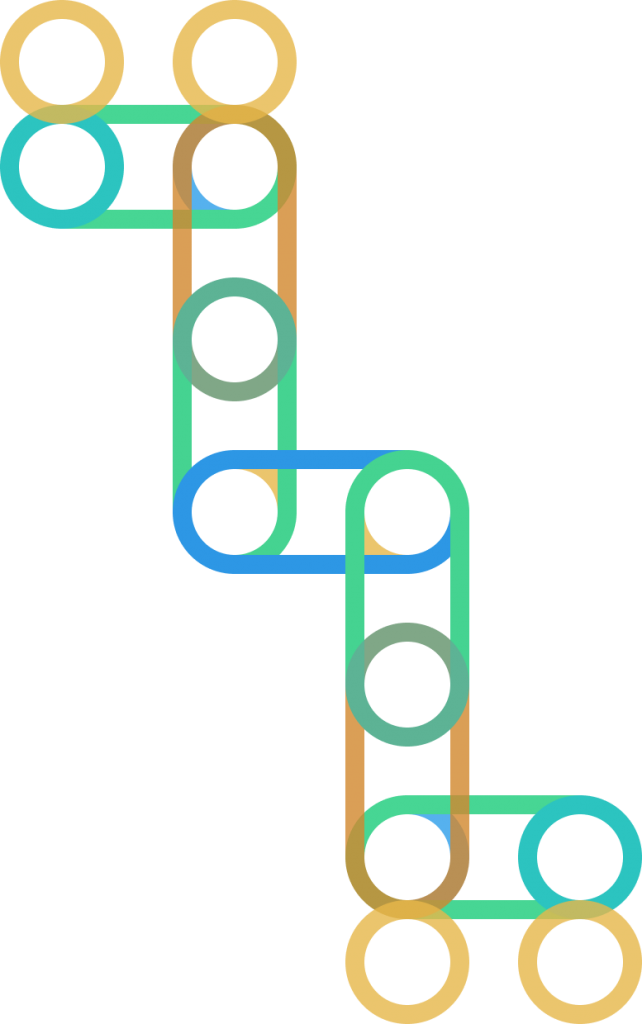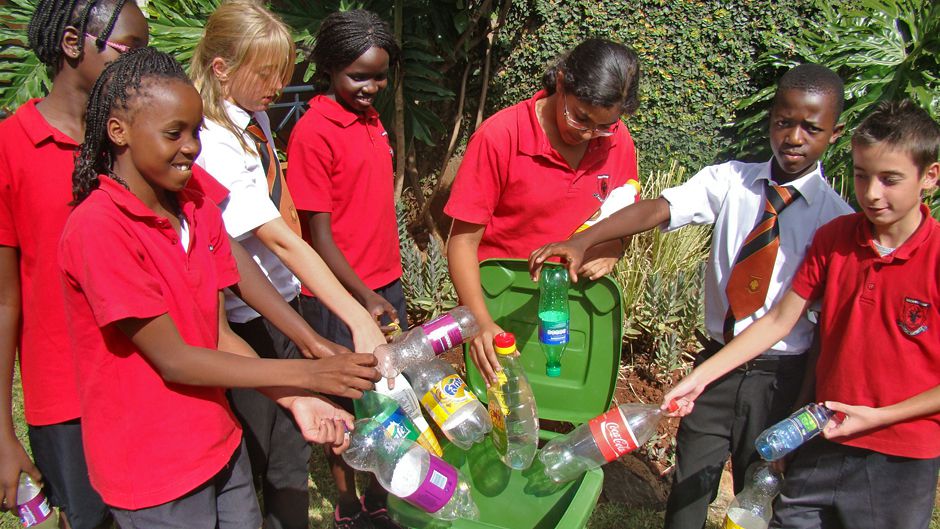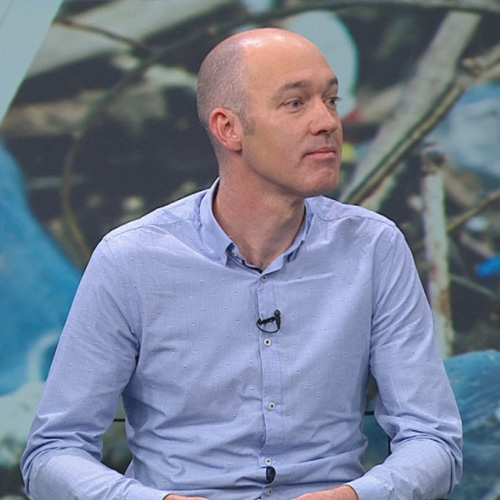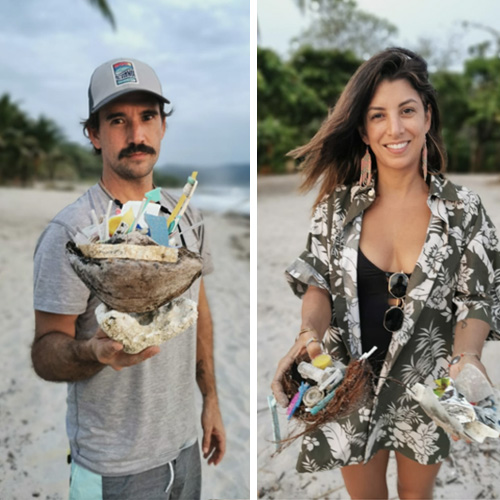
In the bustling heart of Kibera, Nairobi, Peter Muthaura, Director of Training and Strategic Partnerships at the Human Needs Project, is pioneering a remarkable initiative to uplift the community. With a focus on providing essential services and empowering residents, Muthaura's work exemplifies the power of innovative thinking and strategic partnerships in tackling some of the most pressing challenges in Africa's largest urban slum.

Peter Muthaura, Director of the Human Needs Project in Kibera, Africa’s largest slum, is tackling environmental and social issues through an innovative solution. Residents can earn points by turning in plastic waste, redeemable for essential services like clean water and sanitation.
Considered Africa’s largest urban slum, with estimates of its population ranging from 200,000 to over 1 million residents, Kibera covers an area of about 2.5 square kilometers (0.97 square miles) near the city center of Nairobi. Living conditions in Kibera are extremely poor, with high population density, limited access to basic services like clean water and sanitation, poor housing structures, unemployment, and poverty.
The slum has limited infrastructure and municipal services, with open sewers, a lack of garbage collection, and residents obtaining water from kiosks or vendors. Despite the challenges, Kibera has a strong community spirit and informal economy, with residents operating small businesses and community organizations working to improve conditions.
The approach by the Human Needs Project connects two major challenges – plastic pollution and lack of access to basic amenities. By allowing plastic to be exchanged for services, it incentivizes waste collection while providing vital resources to the community.
Muthaura cites design and integrated thinking as core to creating sustainable, impactful interventions. However, funding remains an obstacle to scaling up the plastic collection and reprocessing system.
Drawing inspiration from tangible local impact and philosophies emphasizing resource respect, Muthaura believes building strong partnerships focused on shared goals is key to amplifying positive change long term.
The Human Needs Project demonstrates how innovative solutions can address complex environmental and social issues holistically through inclusive, community-driven models.

Five Minutes with Peter Muthaura:
adaPETation®: Peter, it’s an honor to have you with us. Could you share the lightbulb moment for the Human Needs Project?
Peter Muthaura: Thank you for having me. The realization hit us when we saw the stark contrast in Kibera: an abundance of solid waste and a dire need for clean water, sanitation, and economic opportunities. We saw an opportunity to connect these dots by allowing residents to earn points for turning in PET waste, which they can redeem for essential services at our facility.
adaPETation®: What problem are you solving with this innovative solution?
Peter Muthaura: We’re addressing a dual challenge: environmental degradation and limited access to basic services. Our approach not only cleans up the environment by tackling plastic waste but also empowers the community by improving access to clean water, sanitation, and skills training.
adaPETation®: What motivated you to integrate solutions to plastic pollution into your broader mission?
Peter Muthaura: Our mission has always been about empowerment. We realized that addressing plastic pollution was essential to achieving this in Kibera, given the lack of waste management infrastructure. It’s about creating a holistic solution that tackles both environmental and social issues.
adaPETation®: How does design contribute to a better future in your work?
Muthaura: Design is at the core of our approach. By integrating environmental solutions from the start, we ensure our interventions are sustainable and impactful, rather than afterthoughts.
adaPETation®: What challenges do you face in scaling this solution?
Peter Muthaura: Funding is a significant hurdle, both for incentivizing PET plastic collection and for the collection and reprocessing value chain. We’re constantly seeking partnerships and innovative funding models to overcome these challenges.
adaPETation®: Where do you find inspiration for your work?
Peter Muthaura: Our inspiration comes from the tangible impact we see on the ground. Knowing that we’re not only reducing plastic pollution but also providing essential services is incredibly motivating. We’re also inspired by approaches like biomimicry and systems thinking, which offer innovative solutions to complex problems.
adaPETation®: How do you think other worldviews can inform responses to global challenges?
Peter Muthaura: Worldviews like the Eastern philosophy of Mottainai, which emphasizes respect for resources and waste reduction, resonate with our work. Such perspectives can inspire more sustainable and respectful approaches to resource use and waste management.
adaPETation®: How can we sustain networks of hope?
Peter Muthaura: By building strong partnerships and focusing on shared goals, we can amplify our impact and ensure the sustainability of our initiatives. Collaboration is key to creating lasting change.
Peter Muthaura’s work with the Human Needs Project in Kibera is a testament to the power of innovative solutions to complex challenges. By turning plastic waste into a currency for essential services, Muthaura and his team are not just addressing environmental issues but are also empowering residents to improve their lives. This visionary approach highlights the importance of integrated solutions and strategic partnerships in creating a more sustainable and equitable world.
JOIN THE MOVEMENT
If you are looking for more information on the equitable approach of Peter Muthaura sign up to receive more information about the Human Needs Project and other inspirational changemakers sign up to receive weekly updates.
Share it
The Other PET Heroes & Useful Links
THE HISTORY OF PLASTIC
Throughout the history of plastic, PET has been crucial in keeping food fresh with lightweight and durable packaging solutions that have helped reduce food waste for almost a century. Learn all about the invention of plastic and the important role it has played feeding people and saving the lives of humans and elephants in the adaPETation® timeline of the history of plastic.





